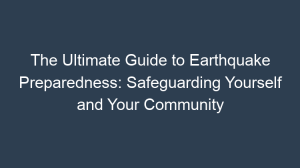Purchasing a home is a significant milestone in life, entailing meticulous planning and preparation. The initial step in this exciting process is to gain a comprehensive understanding of the home-buying landscape. Whether you’re a first-time homebuyer or an experienced investor, embarking on this journey armed with knowledge and guidance is crucial.
The intricacies of the home-buying process can be daunting, but by breaking it down into manageable steps, you can navigate this exhilarating journey with confidence. From assessing your financial readiness to selecting the right real estate agent, each step brings you closer to realizing your dream of homeownership.
In this comprehensive guide, we’ll delve into the essential aspects of the home-buying process, providing valuable insights and expert advice to empower you throughout your journey. Let’s embark on this adventure and discover the first steps to buying a home.
1. Establishing Your Financial Readiness
Assess Your Credit Score:
Your credit score is a crucial factor in determining your loan eligibility and interest rates. Obtain a free copy of your credit report from each of the three major credit bureaus and review it thoroughly. If you identify any errors or discrepancies, dispute them immediately.
Calculate Your Debt-to-Income Ratio:
Lenders assess your debt-to-income ratio to determine your ability to repay a mortgage. Calculate this ratio by dividing your monthly debt payments by your gross monthly income. Aim for a ratio below 36% to increase your chances of loan approval.
Save for a Down Payment:
Typically, a down payment of 20% of the purchase price is recommended. However, many loan programs allow for lower down payments. Consult with a mortgage lender to determine your options based on your financial situation.
2. Research the Local Real Estate Market
Gather Information About Your Desired Neighborhoods:
Research various neighborhoods that align with your lifestyle, commute, and budget. Consider factors such as school districts, crime rates, and proximity to amenities.
Analyze Market Trends:
Stay updated on local market trends, including home prices, inventory levels, and days on the market. This knowledge will help you make informed decisions when it comes to pricing and negotiation.
Consult with a Real Estate Agent:
Partner with a reputable real estate agent who specializes in the areas you’re interested in. Their expertise and local knowledge will prove invaluable throughout the buying process.
3. Getting Pre-Approved for a Mortgage
Understanding Pre-Approval:
Pre-approval is a crucial step that demonstrates your serious intent to buy a home and strengthens your position as a potential buyer. It also provides you with a clear understanding of your borrowing power.
Approaching Lenders:
Contact multiple lenders, including banks, credit unions, and online lenders, to compare mortgage rates and terms. Gather information on different loan programs and choose the one that best suits your needs.
Submitting Financial Documents:
Provide your lender with the necessary financial documents, such as pay stubs, W-2s, tax returns, and bank statements. This information will be used to assess your creditworthiness and determine your loan eligibility.
4. Selecting the Right Home
Narrowing Down Your Options:
Work with your real estate agent to identify homes that meet your criteria. Attend open houses, schedule private viewings, and take virtual tours to get a feel for different properties.
Evaluating Properties:
Inspect potential homes thoroughly, paying attention to the condition of the structure, appliances, and major systems. Consider factors such as square footage, layout, and curb appeal.
Making an Offer:
When you find the right home, submit a purchase offer through your real estate agent. The offer should include the purchase price, earnest money deposit, and any contingencies, such as a home inspection.
5. Negotiating the Sale
Understanding Negotiations:
Negotiation is an integral part of the home-buying process. It’s a delicate balance between advocating for your interests while maintaining a cooperative relationship with the seller.
Strategies for Successful Negotiation:
Be prepared to compromise on certain aspects of the deal, such as the purchase price or closing costs. Be responsive to counteroffers and willing to walk away if the terms are not favorable.
Professional Guidance:
Consult with your real estate agent to develop a negotiation strategy tailored to your specific situation. Their expertise can be invaluable in securing the best possible deal.
6. Getting a Home Inspection
Purpose of a Home Inspection:
A home inspection is a thorough evaluation of the property’s condition conducted by a qualified inspector. It helps identify any major issues or potential problems that may affect the value or safety of the home.
Selecting an Inspector:
Choose a licensed and experienced home inspector who is familiar with the local area. Ask for recommendations from your real estate agent or friends who have recently purchased homes.
Reviewing the Inspection Report:
Carefully review the inspection report with your real estate agent. If any significant issues are identified, you can renegotiate the purchase price or request repairs from the seller.
7. Finalizing the Mortgage and Closing
Securing Your Loan:
Once your offer is accepted, finalize the mortgage loan with your chosen lender. Provide any additional documentation required by the lender and attend a loan closing meeting to sign the final documents.
Preparing for Closing:
Gather all the necessary documents for closing, such as proof of insurance, a government-issued ID, and a cashier’s check for the down payment and closing costs. Review the closing statement carefully before signing.
Completing the Sale:
At the closing meeting, you will sign the deed and other legal documents transferring ownership of the home to you. Once the closing is complete, you will receive the keys to your new home and officially become a homeowner.
FAQs on the First Step to Buying a Home
Q: What is the first step to buying a home?
A: The first step to buying a home involves establishing your financial readiness by assessing your credit score, calculating your debt-to-income ratio, and saving for a down payment.
Q: How can I research the local real estate market?
A: To research the local real estate market, gather information about desired neighborhoods, analyze market trends, and consult with a reputable real estate agent who specializes in the area.
Q: What is the purpose of getting pre-approved for a mortgage?
A: Getting pre-approved for a mortgage demonstrates your serious intent to buy a home and provides you with a clear understanding of your borrowing power, strengthening your position as a potential buyer.
Q: How do I select the right home?
A: To select the right home, work with your real estate agent to identify properties that meet your criteria, thoroughly evaluate potential homes, and make an offer when you find the right one.
Q: What is the role of negotiations in the home-buying process?
A: Negotiations play a crucial role in the home-buying process. It involves strategically advocating for your interests while maintaining a cooperative relationship with the seller to secure the best possible deal.
Conclusion
The journey of buying a home is an exciting and rewarding experience. By taking the first step to establish your financial readiness and conducting thorough research, you set the foundation for a successful home-buying journey. With the guidance of a knowledgeable real estate agent, you can navigate the process with confidence, negotiate favorable terms, and finally realize the dream of homeownership.







